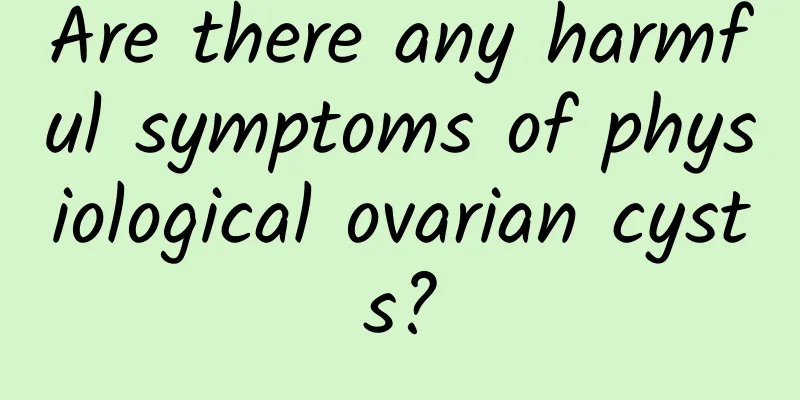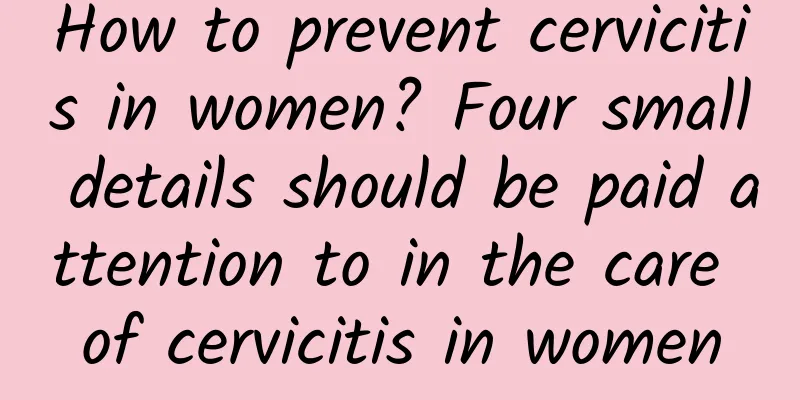What is the difference between a woman who has her uterus removed and a normal woman? The doctor tells the truth

|
Ms. Wang, 45 years old, has been experiencing lower abdominal pain and irregular menstruation recently. After she came to the hospital for a checkup, she was found to have multiple fibroids in her uterus. After repeated discussions and considerations between our doctors and her, she finally decided to undergo a hysterectomy. After the operation was successfully completed, Ms. Wang began to worry about what would happen after her uterus was removed. She asked me, her attending physician, "Doctor, what is the difference between me and a normal woman after my uterus is removed?" I patiently explained, "Ms. Wang, there will be some physiological changes after the uterus is removed, but it will not affect your overall health." Menstruation stops: I first pointed out that the uterus is the origin of menstruation. After the uterus is removed, a woman will no longer have menstrual periods. This may be a relief for some women who are troubled by menstrual problems. Loss of fertility: The uterus is the place where life is nurtured. After the uterus is removed, women will no longer be able to become pregnant or give birth. Therefore, it is a significant consideration for women who have not yet completed their fertility plans. Changes in pelvic structure: Although hysterectomy does not significantly affect other organs, the loss of the uterus causes some structural changes within the pelvis. I emphasize: “You may feel a little different after surgery, but most women adjust to the change quickly.” Next, we talked about the psychological impact: "Having a hysterectomy is not only a physical change, but also a psychological challenge for many women." Adjustment of self-perception: Some women may worry that losing their uterus will affect their identity as a woman. I comforted him: “A woman’s identity and value are not determined solely by her ability to bear children. You can still have a fulfilling life and rich emotional experiences.” Mood swings: Mood swings, including anxiety and depression, may occur after surgery. I suggest Ms. Wang: "If you feel emotionally unstable, you can seek help from a psychologist, communicate more with family and friends, and don't suppress your emotions." Improved quality of life: the benefits of having a hysterectomy I also pointed out that although there are some effects of removing the uterus, for many women with uterine disease, this surgery can significantly improve their quality of life. Pain relief: Ms. Wang has been suffering from pain due to uterine fibroids for a long time. After the operation, the pain will be greatly alleviated. Improved quality of life: After the uterus is removed, there are no more troubles caused by menstruation and uterine diseases. Many women say that their quality of life has been significantly improved. Doctor's advice: postoperative care and health management I continued to provide Ms. Wang with some suggestions for postoperative care and health management: "The recovery period after surgery is very important, as it affects your quality of life in the future." Take adequate rest: Pay attention to rest after the operation and avoid excessive fatigue. "Although the surgical wound is not big, the internal recovery will take time." Regular review: I suggest that Ms. Wang go to the hospital for regular checkups to monitor her postoperative recovery and ensure that no complications occur. Healthy Lifestyle: Maintaining a healthy lifestyle, including a balanced diet, moderate exercise, and good sleep, can help with recovery after surgery and maintain your overall health. Real Case: New Life After Uterine Removal In order to give Ms. Wang more confidence, I shared a success case. Ms. Liu also underwent a hysterectomy due to uterine fibroids. After the surgery, she actively adjusted her mindset and followed our doctor's advice for recovery. Today, she is not only free from uterine disease, but also feels her life is easier because she no longer has menstruation. She also participated in fitness activities in the community, made many new friends, and significantly improved her quality of life. Finally, I concluded: “Having your uterus removed is an important decision, but it doesn’t mean your quality of life will suffer. On the contrary, many women have achieved a higher quality of life by actively adjusting their lifestyle after surgery. The key is to face the changes correctly and maintain a positive attitude.” After listening to Ms. Wang, her doubts gradually dissipated. She thanked me for my detailed answers and encouragement, and said that she would actively face the new life in the future. We understand that although removing the uterus brings about physical and psychological changes, it does not affect women's overall health and quality of life. I hope that every woman who needs a hysterectomy can gain inspiration from it, respond scientifically, and live a healthy life. Through Ms. Wang's experience, we understand that even if we face major surgery, as long as we respond positively and manage scientifically, we can still live a healthy and happy life. I hope that every reader can gain inspiration from it, pay attention to women's health, and care for themselves and their families. Feel free to share your stories and opinions in the comments section, and discuss with everyone how to better care for and maintain women's health. Follow my account to get more health information and expert advice, and work together to protect women's health and happiness! |
<<: Will I get cervical cancer if I have cervical erosion for several years?
Recommend
Can’t get rid of excess fat? Drinking liver-nourishing tea in spring can promote metabolism
Spring is here and flowers are blooming, but are ...
Can miscarriage be cured?
Many women suffer from habitual miscarriages beca...
What to eat during pregnancy with multiple uterine fibroids? Diet for multiple uterine fibroids during pregnancy
What to eat during pregnancy with multiple uterin...
What are the harms of cervical warts to the human body?
Cervical warts are a very harmful disease. It is ...
Female friends: How should you take good care of pelvic inflammatory disease?
Many female friends pay great attention to their ...
Will eating cut-edge toast for breakfast make you lose weight? Does raw toast make you fat? Are whole wheat the healthiest? A comparison of the calories of 5 types of toast
During the epidemic, when ordering breakfast deli...
Causes of Dysfunctional Uterine Bleeding During Menopause
Dysfunctional uterine bleeding, referred to as &q...
Experts answer common causes of white lesions on the vulva
Vulvar leukoplakia is a gynecological disease tha...
Get rid of the extra fat around your waist and abdomen! Wu Mingzhu: Drinking summer heat-clearing slimming tea can remove dampness and reduce fat
As we are about to enter the hot summer, waist an...
What is the main cause of pelvic peritonitis?
Female friends all know about pelvic peritonitis....
You can practice kicking at home with 4 sets of high-speed fat burning
Nowadays, people have bad postures, and even sitt...
Lose weight and don’t gain it back! Supplement protein to increase basal metabolism
Obesity is a disease that requires diet and exerc...
The occurrence of ectopic pregnancy is related to repeated abortions in women
In our lives, if women do not pay attention to th...
Will long-term asexuality really lead to premature ovarian failure and endocrine disorders? Gynecologists tell you the truth
Ms. Li is 45 years old and works in a private com...
Experts explain important precautions after abortion
Although abortion is no longer considered a major...









